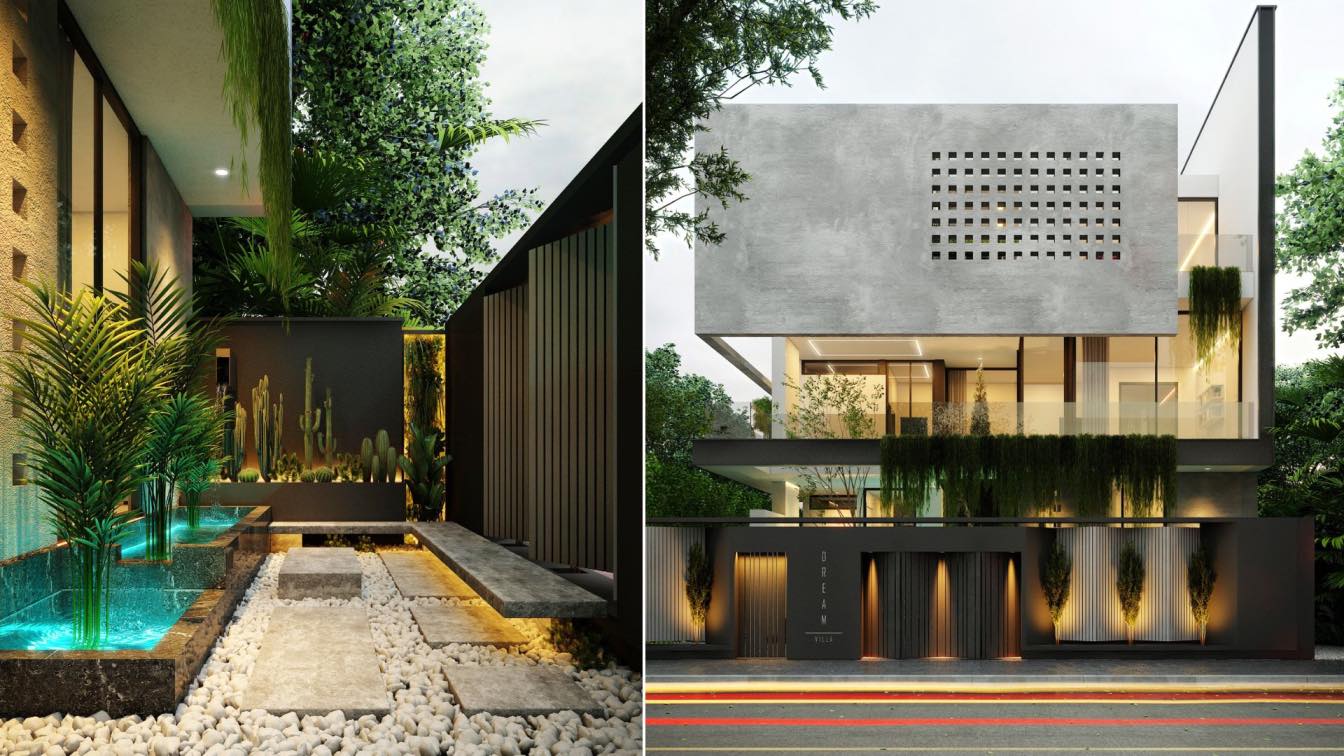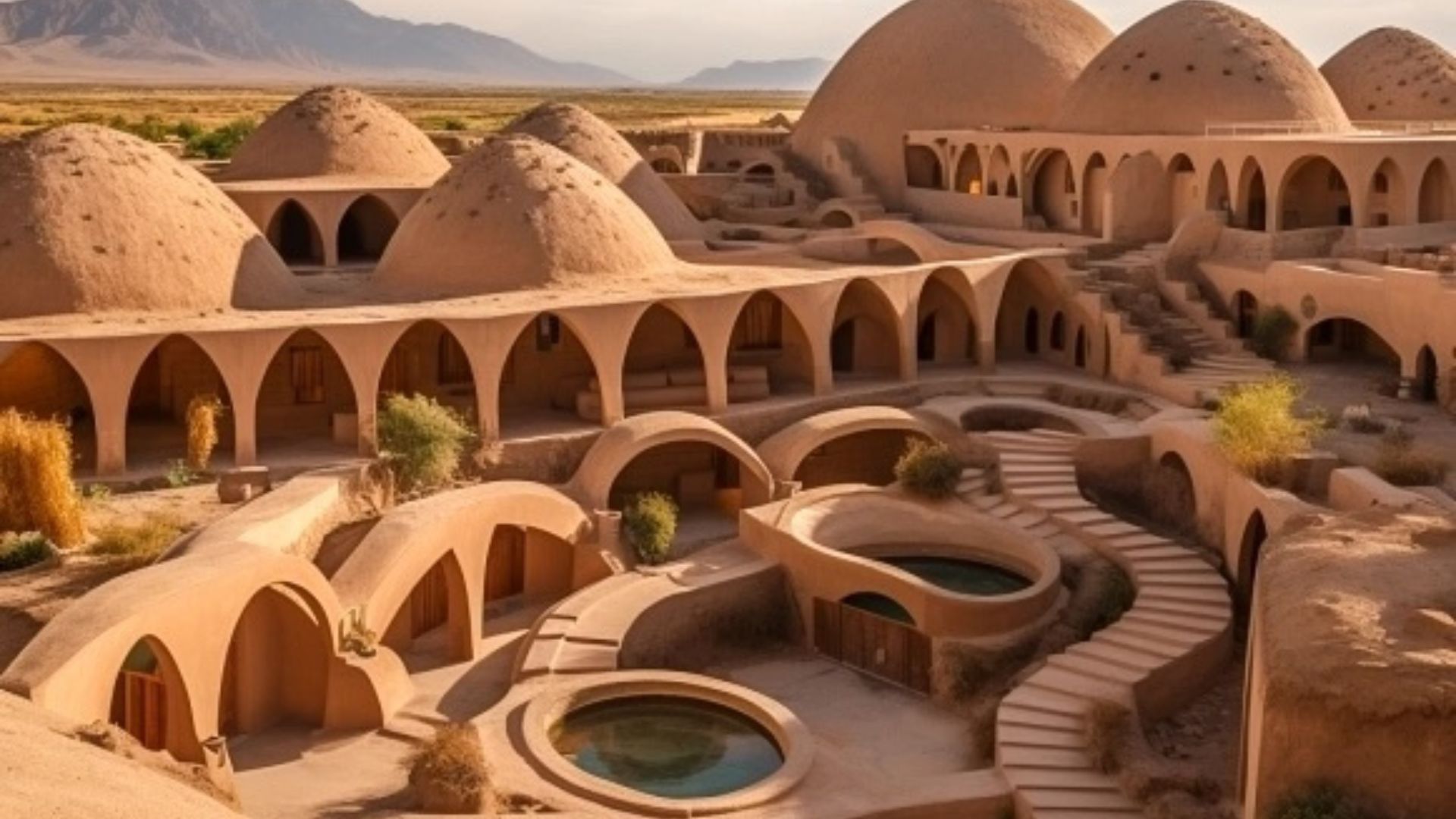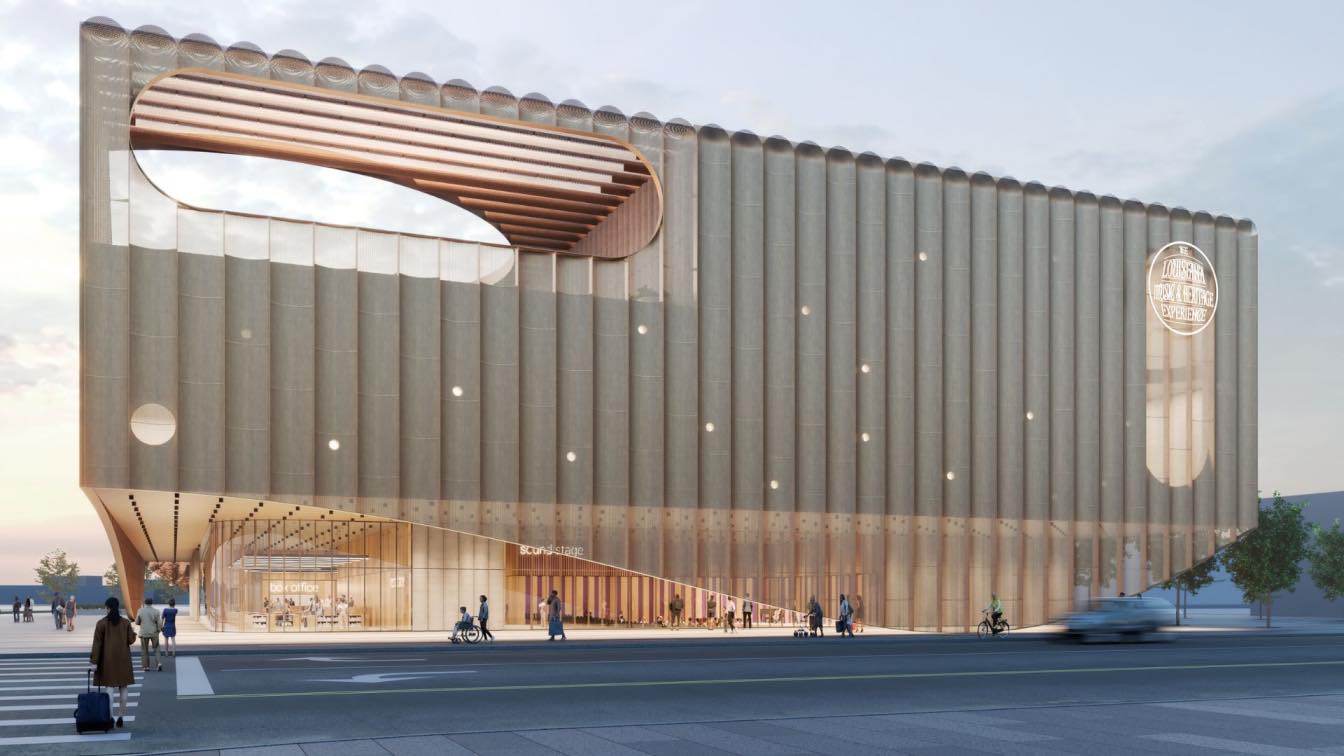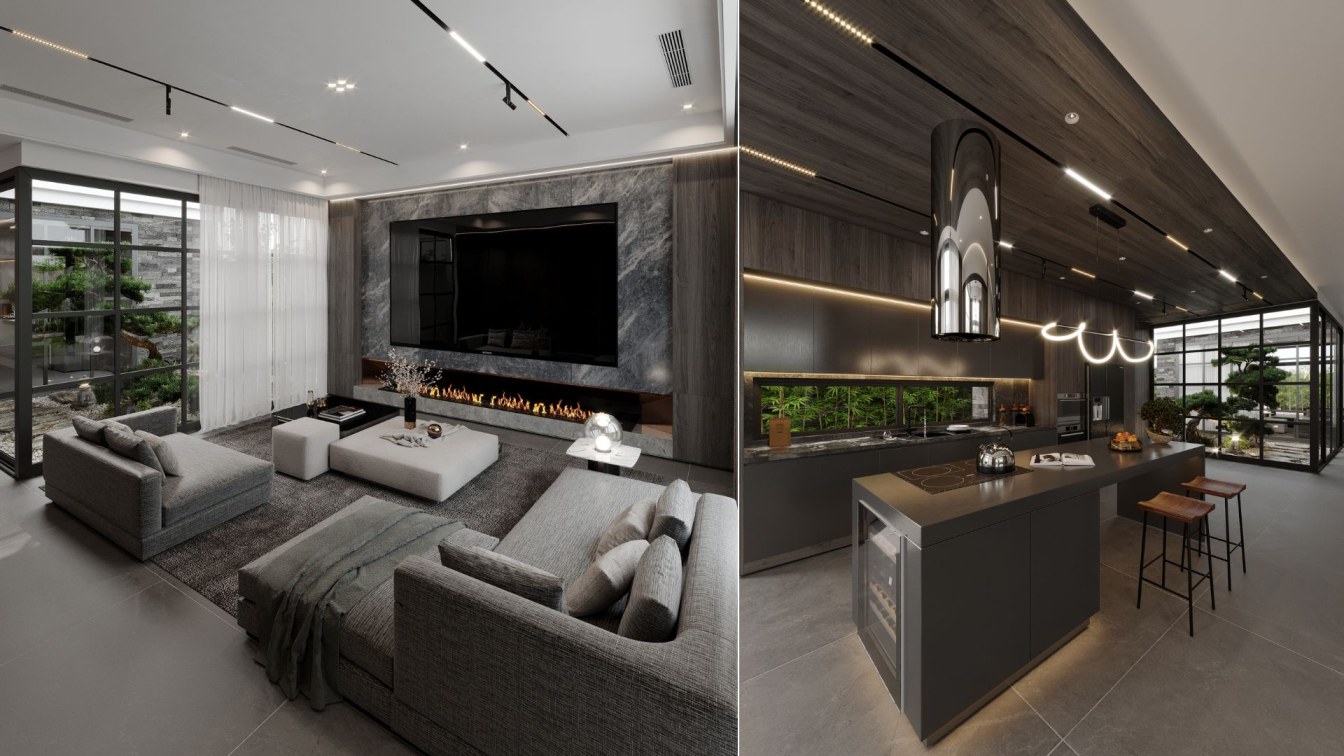Mitosis by GG-loop brings biophilic regenerative architecture to large-scale urban developments. New parametric design tool to generate positive footprint neighbourhoods constructed in cross laminated timber.
The need for healthy homes has hardly ever been more apparent than during the current global condition. The current efforts to reduce the negative impacts of buildings are inadequate. Therefore the built environment must be designed in a different way. To bring regenerative collective habitation to all scales of development, Amsterdam architecture practice GG-loop, sharing the vision with Arup, is developing Mitosis: a modular building system created by a parametric design tool following biophilic and user-centric design principles.
Mission: GG-loop's goal is to develop an architectural solution that "gives back" to the Planet and can serve as a benchmark for the real estate and urban development sector. Mitosis’ vision is to deepen the understanding of its relationship with Nature, to raise awareness and sensitize both professionals and the general public regarding the importance of biophilic architecture as an answer to the current climate condition.
![]() Mitosis- XL. image © GG-loop & Hexa Pixel
Mitosis- XL. image © GG-loop & Hexa Pixel
Sharing the same vision as Arup, GG-loop works to inspire and provide healthy sustainable living communities and net-positive impacts on ecology and society. By working with the natural environments rather than against it, the natural balance and health of the planet can be restored.
Giacomo Garziano, founder of GG-loop: “Mitosis aims to support the daily uses and the tasks of the inhabitants, in order to promote direct and indirect contact with nature. We aim to generate a healthy, emotional and productive habitat for rest, work and living at 360° with nature.”
![]() Mitosis- XL. image © GG-loop & Hexa Pixel
Mitosis- XL. image © GG-loop & Hexa Pixel
Inspiration: Mitosis is the follow-up of a multi-awarded pilot project completed by GG-loop in 2019: Freebooter, a pair of prefabricated CLT (Cross Laminated Timber) apartments in Amsterdam, wrapped in a parametric timber louvered facade. The building was created using biophilic principles, connecting architecture with nature in order to improve the life quality of the people who use the building. GG-loop’s ambition to bring these qualities to multiple scales has resulted in Mitosis.
![]() Mitosis- XL. image © GG-loop & Hexa Pixel
Mitosis- XL. image © GG-loop & Hexa Pixel
The name Mitosis refers to the biological process of a single cell dividing itself into two identical daughter cells. It represents the modularity and the long-term adaptation of the system and serves as a metaphor for a flexible co-living organism where each residential unit coexists in symbiosis with all the others and its environment.
![]() Mitosis- XL. image © GG-loop & Hexa Pixel
Mitosis- XL. image © GG-loop & Hexa Pixel
Bringing biophilic design to large-scale developments
The "Biophilia Hypothesis" by Edward O. Wilson reveals why humans have an intrinsic need to connect with nature and other living systems. Mitosis adopts the 14 principles of biophilic design and articulates the relationships between nature, human biology and the design of the built environment. It builds an ecosystem where dwellers experience a unique way of living and fulfil their innate desire to reconnect with nature. Exposed to green shared areas, tiny forests and gardens that cascade up and down the entire building, dwellers can benefit from the direct and indirect connection with nature. Health and well-being are fostered through careful material choices, flexible layouts, organic interiors and large outdoor spaces.
Giacomo Garziano, founder of GG-loop: “Our vision goes further than the integration of just green systems, but rather creates a built environment that restores and nurtures its surroundings, and that serves as a catalyst for a positive change.”
![]() Mitosis- XL. image © GG-loop & Hexa Pixel
Mitosis- XL. image © GG-loop & Hexa Pixel
Positive footprint ecosystems: Mitosis creates regenerative ecosystems with a positive ecological footprint. It balances the technical benefits of an environmentally conscious construction with the qualities of an organic and healthy environment in which its residents coexist harmoniously.
![]() Mitosis- XL. image © GG-loop & Hexa Pixel
Mitosis- XL. image © GG-loop & Hexa Pixel
Mitosis generates urban clusters using prefabricated timber and bio-based modules that are cost-efficient and flexible in its construction. By consciously choosing materials that capture carbon and using resources more efficiently, Mitosis constructs a net-positive built environment that produces more energy than it consumes and uses resources in a circular way.
![]() Mitosis- XL. image © GG-loop & Hexa Pixel
Mitosis- XL. image © GG-loop & Hexa Pixel
Enhancement of biodiversity in the urban fabric has a beneficial impact on the quality of life and the environmental education of the inhabitants. Mitosis integrates plant and animal life throughout the buildings, allowing its dwellers to coexist harmoniously with the biodiversity of local flora and fauna. Mitosis is designed to co-evolve with its surrounding, by recreating ecosystems appropriate to the climate, site and residents. In this way, Mitosis can facilitate the conservation and improvement of the biodiversity that existed on the site.
Giacomo Garziano, founder of GG-loop: “We are part of nature in a deep and fundamental way, but in our modern lives we’ve lost that connection. In addition to the technical benefits of acoustics improvement, CO2 and urban heat reduction, being in direct contact with nature has proven to improve physical and mental health and overall well-being.”
![]() Mitosis- XL. image © GG-loop & Hexa Pixel
Mitosis- XL. image © GG-loop & Hexa Pixel
Social cohesion: The distinct rhomboid shape of the individual design modules is integral to the functionality of Mitosis. Stacking these modules creates large areas for shared outdoor living, with each unit having at least one terrace.
Mitosis’ vertical connections are placed externally to connect the units and terraces, creating a continuous ribbon of outdoor ‘cloyster-like’ spaces, fostering a sense of openness, belonging, protection and privacy for residents.
![]() Mitosis- XL. image © GG-loop & Hexa Pixel
Mitosis- XL. image © GG-loop & Hexa Pixel
Mitosis’ construction is organic and flexible, providing large areas of urban and vertical farming, greenhouses, wildlife corridors and integration of habitat creation, that encourage shared outdoor activities among residents.
By applying elements of nature and providing available renewable resources in shared facilities and infrastructures of community living, Mitosis encourages dwellers to engage in pro-environmental practices and share their expectations of sustainability. This helps create healthier environments and improve social interaction.
![]() Mitosis- XL. image © GG-loop & Hexa Pixel
Mitosis- XL. image © GG-loop & Hexa Pixel
Project development: Mitosis is developed by parametric and BIM 3D modeling software. It generates dwelling clusters composed of prefabricated CLT modules through a complex iterative process. The optimized volume and scale of Mitosis are based on the calculation and simulation of parameters related to specific stakeholders' needs and conditions of a given site. The volumes and internal layouts derive from the calculation and simulation of parameters related to specific conditions of the site: solar radiation, wind impact, privacy, population density, common spaces index and vertical connections. With the parametric design tool, Mitosis explores how buildings can grow, evolve, heal and self-sustain, similar to human bodies, as well as use biological metaphors to design buildings capable of regeneration, resilience and self-sufficiency.
![]() Mitosis- XL. image © GG-loop & Hexa Pixel
Mitosis- XL. image © GG-loop & Hexa Pixel
Due to its flexible structure and grid formation, Mitosis is able to host a variety of typologies that are customizable to the resident’s needs. It is applicable to diverse urban scales, ranging from off-grid single family detached houses (30m2 up to a quadruplex 120m2 ) to high density mixed-use urban clusters that incorporate public functions such as education, leisure, wellness and retail. Mitosis generates experiential spaces that respect both the environment and its direct inhabitants, reconnecting both in a balanced ecosystem. By accommodating for all sizes, typologies and performance levels, Mitosis moves beyond the basic concept of sustainable design and shifts towards a design that focuses on producing net-positive impacts on the environment.
![]() Mitosis- XL. image © GG-loop & Hexa Pixel
Mitosis- XL. image © GG-loop & Hexa Pixel
 Mitosis- XS. image © GG-loop
Mitosis- XS. image © GG-loop
 Mitosis- XS. image © GG-loop
Mitosis- XS. image © GG-loop
 Mitosis- XS. image © GG-loop
Mitosis- XS. image © GG-loop
 Mitosis- XS. image © GG-loop
Mitosis- XS. image © GG-loop
 Mitosis- XS. image © GG-loop
Mitosis- XS. image © GG-loop
 Mitosis- XS. image © GG-loop
Mitosis- XS. image © GG-loop
 Mitosis- XS. image © GG-loop
Mitosis- XS. image © GG-loop
 Mitosis- XS. image © GG-loop
Mitosis- XS. image © GG-loop
 Mitosis- XS. image © GG-loop
Mitosis- XS. image © GG-loop
 Mitosis- XS. image © GG-loop
Mitosis- XS. image © GG-loop
 Construction process
Construction process
 Typology configuration
Typology configuration
 Grid configuration
Grid configuration
 Scalability
Scalability
 Expansion and apartment ratio
Expansion and apartment ratio
 Parametric optimization
Parametric optimization
About GG-loop
Established in 2014, GG-loop believes that design is not simply about creating functional objects and spaces. Instead, design should tell a story, taking its user on a journey. GG-loop tackles design challenges with this in mind, articulating a vision for projects that is at once future-forward, organic and refined. At all times in the design process, GG-loop places the end-user front and centre.
GG-loop's realised projects include Freebooter (2019) and The Seed of Time (2015). The studio won awards such as the Frame Award (NL), the WAF Award (UK), and the Best of Year 2019 Award (NY).
GG-loop was founded by Giacomo Garziano, a graduate of Facolta' di Architettura di Firenze (2008). Garziano has more than 10 years experience working for studios like NIO Architecten and UNStudio on projects ranging from product design to large scale urban planning and design projects for the real estate, retail, infrastructure and culture industries. Major projects to date include the Doha Metro and the extension of the Contemporary Art Museum in Prato, Italy.
Connect with the GG-loop & Hexa Pixel




